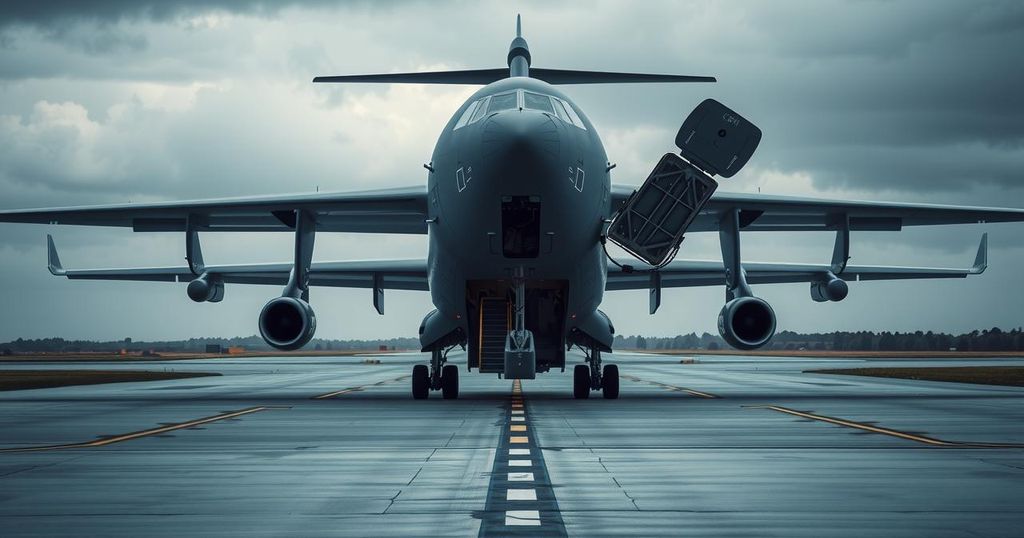U.S. Plans Possible Deportations of Migrants to Libya Amid Controversies
The U.S. may begin deporting migrants to Libya this week despite past criticisms of the country’s human rights record. Officials pointed to potential military flights but noted plans could change. The Trump administration’s aggressive deportation efforts have included various tactics aimed at encouraging voluntary departure, while legal hurdles complicate these efforts. Libya’s ongoing instability and political strife further complicate the matter.
The United States could potentially commence deportations of migrants to Libya as early as this week, according to three U.S. officials who spoke to Reuters on Tuesday. This marks a significant shift, especially given past U.S. criticisms of Libya’s human rights violations and poor treatment of detainees. While two officials indicated that U.S. military flights may begin as soon as Wednesday, they cautioned that plans could change at any moment.
Despite multiple inquiries, the Pentagon referred questions to the White House, which, along with the State Department and Department of Homeland Security, has not yet offered a comment. As it stands now, it remains unclear how many individuals are facing deportation or what nationalities they belong to, making this situation rather murky.
President Donald Trump’s administration, which has a track record of deporting individuals aggressively, has, as of Monday, deported around 152,000 people. During his tenure, Trump has been vocal about his intentions to deport millions, using various tactics to compel migrants to leave voluntarily, including imposing fines and stripping legal status from some individuals.
Recently, U.S. Secretary of State Marco Rubio noted that the administration is not just satisfied with sending migrants to El Salvador. “We are working with other countries to say: We want to send you some of the most despicable human beings, will you do this as a favor to us?” he stated during a cabinet meeting, indicating a push for more distant deportation options.
Reports suggest that the administration has been considering a range of countries for deportations, with Libya being one of them for at least a few weeks now. However, whether any agreement has been reached with Libyan authorities regarding the acceptance of deportees from other nationalities remains uncertain.
Adding to the complexities, the U.S. Supreme Court had recently barred the Trump administration from deporting Venezuelan migrants it accused of gang activity, indicating the legal hurdles that may complicate this situation further. This use of a seldom-invoked wartime law by the administration calls into question the due process rights of those facing possible deportation to Libya.
Libya has endured significant instability since the 2011 NATO-backed uprising and has been divided between eastern and western factions since 2014. The current Government of National Unity, led by Prime Minister Abdulhamid al-Dbeibah, was installed through a U.N.-backed process in 2021 but lacks recognition from the rival House of Representatives based in Benghazi.
As events develop, attention remains on how the U.S. navigates deportations amid criticisms surrounding human rights conditions in Libya and the overall political climate in the region.
The United States is considering deporting migrants to Libya, a move that raises significant legal and humanitarian concerns. With a backdrop of strict criticism regarding Libya’s human rights record, the viability of such actions remains to be seen. Moreover, the ongoing legal battles surrounding deportation policies add complexity to an already contentious issue. The situation reflects broader immigration policy challenges faced by the Trump administration.
Original Source: www.hindustantimes.com




Post Comment